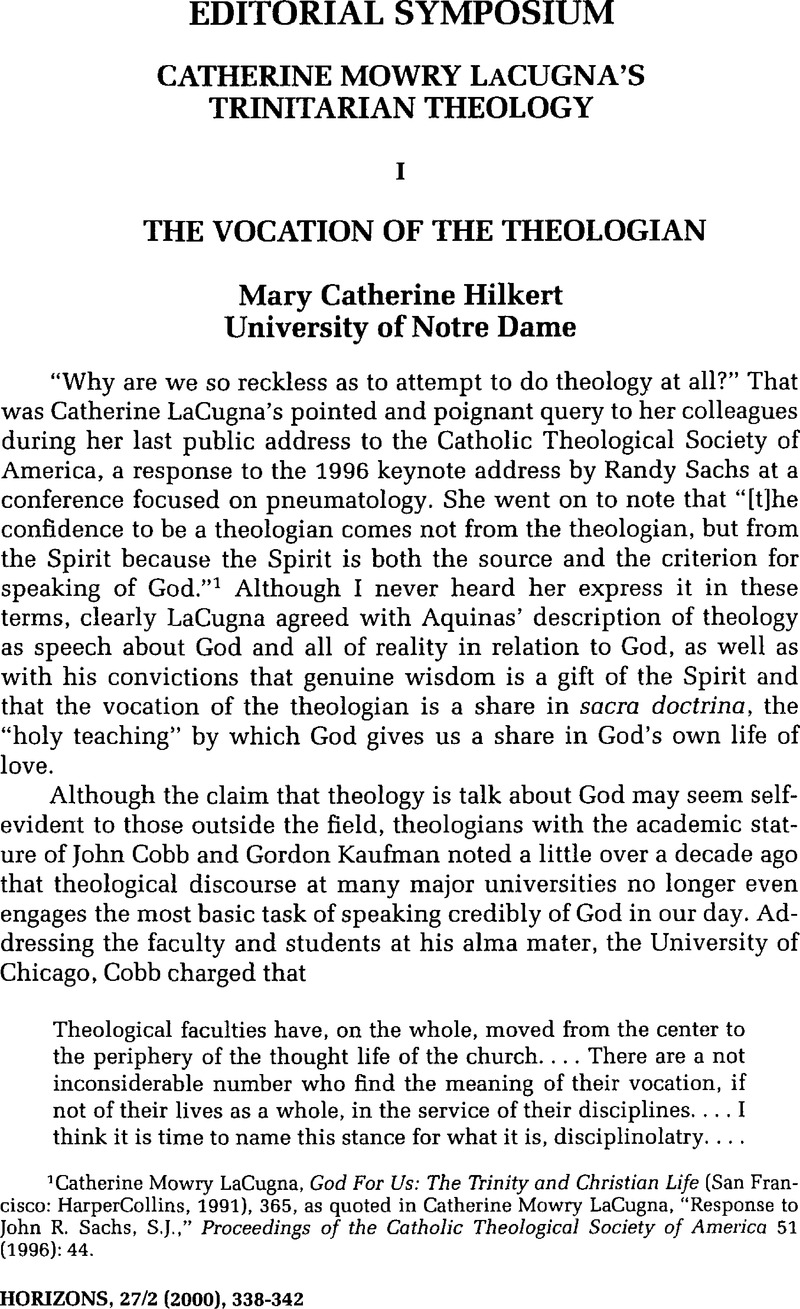No CrossRef data available.
Published online by Cambridge University Press: 09 September 2014

1 Yves Congar believed that the word that most aptly expresses the Spirit's unique hypostatic mark both in the economy of salvation and in God's eternity is “Gift” (I Believe in the Holy Spirit, trans. Smith, David [New York: Seabury, 1983], 3:144Google Scholar). Hilary of Poitiers wrote in the third century, “He [the Christ] commanded [his disciples] to baptize in the name of the Father and of the Son and of the Holy Spirit, that is, by confessing the Author, the only Son and the Gift (Doni)” (Hilary of Poitiers, De Trinitate, II, 1 [PL 10, 50]; cf. II, 29 [PL 10, 70A]. Augustine, too, identified the personal name of the Spirit as Donum or Munus, (Ench. 40 [PL 40, 252]). Peter Lombard continued this tradition, and Aquinas identified “Gift” as one of the Spirit's two personal names (the other is “Love”). (Peter Lombard, I Sent., d. 18; Aquinas, ST Ia, 1, q. 38).
2 This is only one of a variety of difficulties with the “immanent Trinity” and “economic Trinity” paradigm. LaCugna discusses further problems with this paradigm in God for Us: The Trinity and Christian Life (San Francisco: Harper Collins, 1991), 221–30Google Scholar and “Author's Response,” in the review symposium of God for Us, Horizons 20 (1993): 139.Google Scholar LaCugna's position, it should be emphasized, is not that theologians should speak only of the “economic Trinity” and not the “immanent Trinity”—as some of LaCugna's reviewers have stated—but rather that contemporary trinitarian theology would be enhanced by an alternative framework that prescinds from the imprecise language of both the “immanent Trinity” and the “economic Trinity.”
3 See, e.g., LaCugna, , God for Us, 14–15.Google Scholar
4 The expression comes from the title of von Balthasar's, “Der Unbekannte jenseits des Wortes” in Kuhn, Helmut, ed., Interpretation der Welt, Festschrift R. Guardini (Würzburg: Echter, 1965), 638–45.Google Scholar
5 See LaCugna's 1996 Sheedy Award Address, University of Notre Dame.
6 See, e.g., LaCugna, , God for Us, 319–75.Google Scholar
7 McDonnell, Kilian, “A Trinitarian Theology of the Holy Spirit?” Theological Studies 46 (1985): 213–14.CrossRefGoogle Scholar
8 Congar, , I Believe in the Holy Spirit, 2:92.Google Scholar
9 Rahner, Karl, The Spirit in the Church (New York: Seabury, 1979), 27.Google Scholar